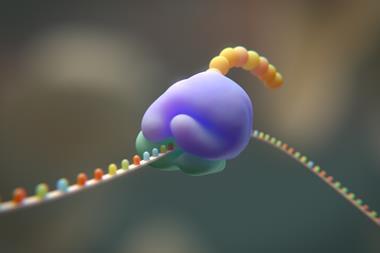In 2016 there were nine of us. By 2018 there were three
At the time of writing, the UK is set to leave the EU without a deal on 29 March 2019.
In January 2016 I joined a biochemistry project at a UK university as part of a larger group of international researchers. By 2018, it had been ripped apart by the uncertainty of Brexit.
Hostile environments
Remainers could well view the time before the UK’s decision to leave the EU as a golden age. Yet even then, my colleagues from Europe and elsewhere faced barriers to working in the UK.
My first prospective colleague was already a victim of the UK Home Office’s ‘hostile environment’ policy, which required him to provide a medical certificate (to prove he did not have a communicable disease) due to his country of origin. Unfortunately, the certificate was delayed, so his visa was denied, despite having worked at the same UK university for the past four years and not having contracted any disease of concern. Fortunately, I rediscovered a former colleague who could join us instead just before the grant lapsed: it was only through serendipitous networking that we had a complete team.
For the next six months our investigations gathered pace: exploring protein interactions with small molecules, complexes and biomolecules. I also worked on an inorganic synthesis project in collaboration with a group in the chemistry department. The creative sparks that get researchers out of bed were starting to fly.
The vote
June 2016 seemed normal in what, admittedly, was the London bubble. On the morning of 23 June, none of us in the biochemistry group thought that Brexit could happen. I spent the afternoon with the chemistry group with a very different perspective; besides the principal investigator and myself, there were seven members: four from the EU and three from countries beyond. I remember the team members looked at me as if I were the only person with a vote to stop it.
The day after the referendum, the atmosphere was funerary; the light conversations that once punctuated the days had evaporated. I doubt we were alone.
I understood some of the arguments for leaving the EU, having grown up in a rural area and having leavers in my extended family with concerns about agriculture. I remember the ‘metric martyrs’ case that campaigned for traders to have the right to use imperial measurements, and I had to sell things to the nearest 5g on a meat counter during my A-Levels and university holidays. International cooperation, however, is important in all fields and the outcome was still a surprise.
Daily routines transformed immediately: idle moments and lunch breaks once used for extra reading and developing ideas were urgently repurposed for finding survival options. The cost of naturalisation has risen more than six-fold since 2005, leaving around 3 million Europeans at the time – who could not vote despite residency – facing four-figure fees per family member to guarantee their residence. Although the ‘settled’ status came later (and, at time of writing, remains unsettled), demanding high fees from people just to apply to secure their future is not conducive to a healthy research environment.
Of course, academic research is not a stable career for many. Groups rise and fall on grants awarded, with researchers being increasingly internationally mobile. Yet this extra set of destabilising factors, especially for those with relationships and family, only excluded people.
The death spiral
The chemistry group, with secure PhD funds and a timely grant, survived; the biochemistry project withered away. The project leader – whose wife worked for a European agency – relocated his family, commuting by air for alternate fortnights to complete results up until July 2017. The friend I had introduced to the team joined a group in Australasia when her funding ended to escape escalating racist abuse where they once lived. Another left the project early to join her partner in France, where funding was more certain. Others moved to start a family or returned home at the end of their funding with nothing certain to stay for. In 2016 our group had nine people. By the end, we were three: a principal investigator, a researcher on an unrelated project and me.
We had IP, ideas and results, but were not ready to publish. Six grant applications to keep the project alive – internal and external – failed. Rejection is a near-inevitability when applying for grants, but we got encouraging noises from three schemes to the point I even turned down a different position to see our work to completion: none came through. A vicious cycle saw confidence drop as the cons of staying outweigh the pros, each departure exacerbating the issue to trigger the next. Two further drafts now read as obituaries for a team scattered on the winds.
In the face of the interminable political uncertainty, I owe a huge debt of gratitude to my chemistry department. Through technician roles and a temporary lectureship, they kept me going with access to labs, practical experience, time to develop ideas and space to write. Despite the uncertainties our multinational staff face, we worked well together despite the growing barriers the UK erected.
However, scientists must look outward, despite the inward-looking national politics. I have now joined a research group in Japan and look forward to forging new connections. But then what will I come home to? Which funding options? Which colleagues will stay? Under what governmental policy? These remain painfully open questions.
I’m sorry Britain, but for now, I think we need some time apart.












No comments yet